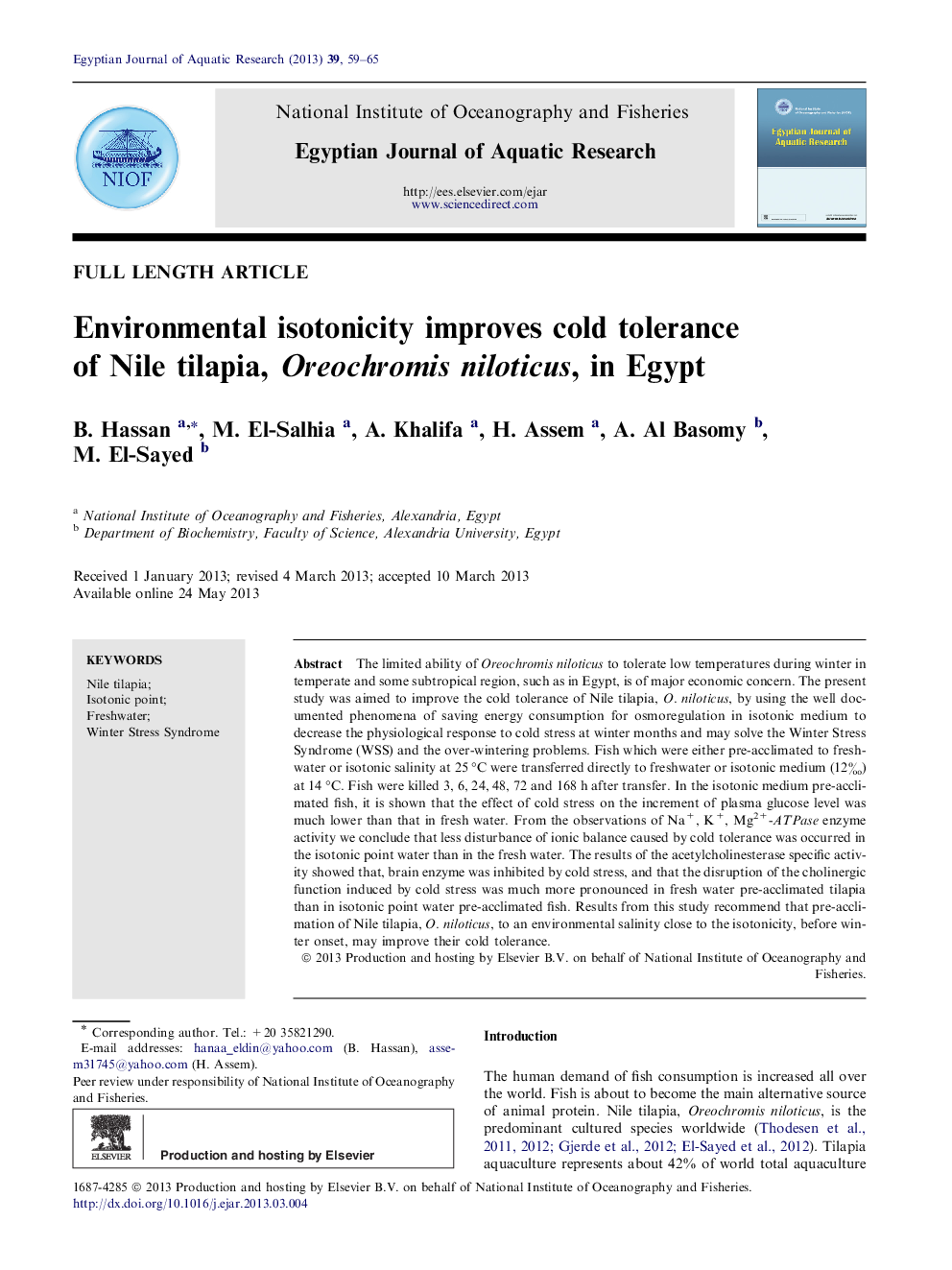| Article ID | Journal | Published Year | Pages | File Type |
|---|---|---|---|---|
| 4493238 | The Egyptian Journal of Aquatic Research | 2013 | 7 Pages |
The limited ability of Oreochromis niloticus to tolerate low temperatures during winter in temperate and some subtropical region, such as in Egypt, is of major economic concern. The present study was aimed to improve the cold tolerance of Nile tilapia, O. niloticus, by using the well documented phenomena of saving energy consumption for osmoregulation in isotonic medium to decrease the physiological response to cold stress at winter months and may solve the Winter Stress Syndrome (WSS) and the over-wintering problems. Fish which were either pre-acclimated to freshwater or isotonic salinity at 25 °C were transferred directly to freshwater or isotonic medium (12‰) at 14 °C. Fish were killed 3, 6, 24, 48, 72 and 168 h after transfer. In the isotonic medium pre-acclimated fish, it is shown that the effect of cold stress on the increment of plasma glucose level was much lower than that in fresh water. From the observations of Na+, K+, Mg2+-ATPase enzyme activity we conclude that less disturbance of ionic balance caused by cold tolerance was occurred in the isotonic point water than in the fresh water. The results of the acetylcholinesterase specific activity showed that, brain enzyme was inhibited by cold stress, and that the disruption of the cholinergic function induced by cold stress was much more pronounced in fresh water pre-acclimated tilapia than in isotonic point water pre-acclimated fish. Results from this study recommend that pre-acclimation of Nile tilapia, O. niloticus, to an environmental salinity close to the isotonicity, before winter onset, may improve their cold tolerance.
